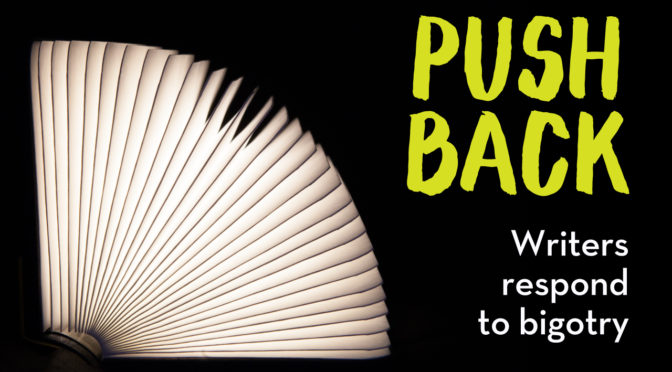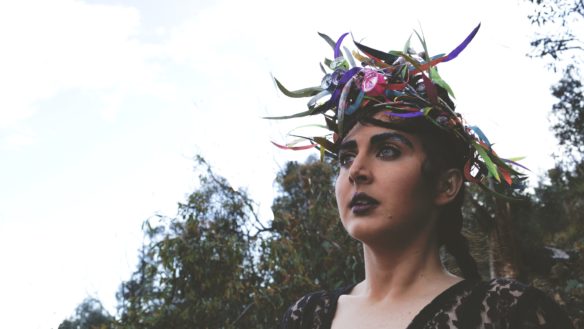Unsettling Freedom

Recently we have seen a renewed increase in bigotry, fear and Islamophobia in Australia, across the political sphere and the media, and among some leading political and social commentators.
We believe there are more powerful views in our community – of solidarity, inclusivity and empowerment.
In our new series, Pushback: Writers Respond To Bigotry, the Stella Schools blog is offering an alternative platform for contributions from constructive and positive voices. A series of guest writers will address topics related to culture, gender, diversity and representation.
In our fourth post, Hannah Donnelly unpacks the denial of colonialism in Australian culture and explores pathways to meaningful solidarity.
“The exclusion of Aboriginal polities from decision-making and the alarming levels of unfreedom that define communities have … animated complex and hard-headed proposals for structural reform.”
— Megan Davis, The Monthly, Dec 2015
I don’t know what it would feel like to be a Muslim woman since Pauline Hanson has returned to parliament, or how hard it would be just to get through each day while someone like Sonia Kruger gets airtime. Islamophobic rhetoric has become a hot currency for politics. But this is not new: the unfreedom of Aboriginal people is inherited by all cultures who fall outside the settler body. Colonisers have long dealt in the currency of ‘the other’. Manipulating truths is the basis of colonial history in Australia. This untold unfreedom is the success of the contemporary colonial settlers.
Settler colonialism is different from other forms of colonialism. It is very resistant to decolonisation and it positions our people as racial minorities instead of colonised nations. Every day we face the denial of colonialism in the place of a mythological Aussie nationhood. This is the country of a fair go, mate. The hardworking battler. It is not the country that exists on top of displacement and genocide because ‘it wasn’t me’.
Let’s unpack the word genocide. This word makes a lot of people uncomfortable, but understanding its place in Australian history is crucial to everyone’s freedom. The UN Convention on the Prevention and Punishment of the Crime of Genocide defines genocide in legal terms and includes causing bodily or mental harm to a group, deliberately imposing conditions of life that will result in physical destruction and forcibly transferring children. Genocide speaks to a wider set of practices inflicted on a group of people than the act of killing. This is what happened. This is what’s happening.
In every word that we write, we must remember there have been history wars in this country. The untold truths of what happened to Aboriginal people are dismissed as a black armband view of history. Frontier wars and massacres defined Australian settlement – and we are still living with their implications and consequences. If the ideologies that informed settlement, based in eugenics and race, have not been stripped bare, colonial behaviour continues. This is why the mention of a halal snack pack can render a politician absurdly disgusted. It is why Bill Leak’s cartoon can release the old boys on freedom of speech like a pack of starving animals.
It is hard not to react to these stunts. Often my responses are demarcated by anxiety and trauma. This is mistaken for hate and anger. The bigoted opinions of others rely on the failure of the national narrative to acknowledge this country’s history. That narrative instead focuses on the future, on policies of reconciliation and recognition, without redressing the realities of a violent invasion. The more my legitimate responses to overt settler politics are defined as hatred, the more powerful the likes of Hanson become. And in a post-internet world, where our thoughts and responses are immediate, context can become obscured. In the end, when the latest hashtag is over, it is hard to show the real hurt and pain caused.
To destabilise unfreedom the settler body would have to relinquish power and decision-making into the hands of the dispossessed. Many Australians agree with a treaty in theory, but they are held back by settler fantasies of reform perpetuated by the white patriarchal heads of our democracy. Refugee and migrant communities can change this. Any culture being discriminated against in this country can turn to the colonial history to understand why that discrimination is happening to it. The more that other cultures face racist aggression the more unfreedom is drawn out of the shadows.
We all must be willing to tell the untold. You must be willing to give us freedom, even if you perceive it to come at your expense – this is only your settler ego unwilling to reform the settler body politic. What story can you share if you ask yourself: at what point did my ancestors live on unceded sovereign land and why?
Looking back at your personal narrative won’t turn you to stone. Solidarity can become meaningful if you know your own history. In the words of Lilla Watson, “If you have come to help me you are wasting your time. But if you have come because your liberation is bound up with mine, then let us work together.”

Hannah Donnelly is a Wiradjuri woman from New South Wales who grew up on Gamilaroi country. Creator of Sovereign Trax Indigenous music culture blog and co-editor of Sovereign Apocalypse zine. Hannah’s personal work experiments with speculative fiction and future imaginings of Indigenous responses to climate change.




